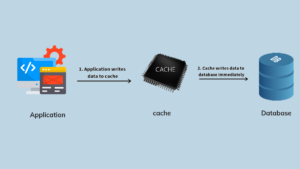Today, our children and young adults are immersed in a digital landscape that evolves at an unprecedented pace. This environment is increasingly populated by scammers who leverage AI-assisted tools like ChatGPT and DeepSeek to craft deceptive content. Such sophisticated tactics can easily deceive even the most tech-savvy individuals.
Image may be NSFW.
Clik here to view.
Some governments are taking significant action in response to these challenges. Countries like Singapore and Australia have implemented restrictions or outright bans on social media platforms, such as Instagram, for users under the age of 16.
These measures aim to protect young minds who are still navigating the complex terrain of online information. Children and teens often struggle to distinguish between fact and fiction, making them particularly susceptible to manipulation.
By limiting access to potentially harmful platforms, these governments are acknowledging the need for more significant safeguards in a digital world rife with misinformation. The goal is to foster a safer online environment where young users can learn and grow without falling prey to malicious influences.
Image may be NSFW.
Clik here to view.
Generative AI tools, such as ChatGPT, deepfake generators, and voice cloning software, have fundamentally transformed the landscape of cybercrime. Once clumsy phishing attempts have evolved into sophisticated operations that can convincingly mimic the tone of a trusted friend or the visage of a familiar face.
Cybercriminals can now create hyper-realistic videos, images, and voice messages, enabling them to impersonate individuals with alarming accuracy. Picture receiving a video call from someone who looks and sounds just like your friend, urgently requesting assistance.
These scammers do not rely solely on generic tactics; they personalize their fraudulent communications by gathering information from victims’ online activities. This level of customization makes it increasingly challenging for individuals to discern real interactions from deceptive ones.
The consequences of this technological advancement are severe. For instance, Singapore experienced an unprecedented surge in identity fraud cases in 2024, primarily fueled by the capabilities of deepfake technology. As these tools continue to evolve, the threat posed by cybercriminals will only grow more daunting.
Image may be NSFW.
Clik here to view.
Governments and industry leaders are taking proactive steps to combat the rising tide of scams. In Singapore, the Cyber Security Agency (CSA) is at the forefront, actively raising awareness and educating citizens about various scam tactics.
Across the Asia-Pacific (APAC) region, there has been a notable increase in data privacy awareness. Countries like India are implementing revised regulations, such as the Digital Personal Data Protection Act, while Thailand has introduced its own Data Protection Framework. These new regulations are transforming how personal data is managed and enhancing trust within the digital ecosystem.
Image may be NSFW.
Clik here to view.
In parallel, technology companies are harnessing the power of artificial intelligence to develop advanced fraud detection systems. These AI-driven solutions monitor communication patterns in real-time, identifying anomalies that could indicate potential scams. By leveraging AI technology, these systems aim to neutralize threats before they can cause significant harm.
Together, these efforts represent a comprehensive approach to safeguarding citizens against cyber threats and enhancing data privacy across the region.
In recent times, there has been a significant movement within the tech sector advocating for a “privacy-by-design” philosophy. This approach emphasizes the importance of embedding strong security features into digital products and services from their inception. By adopting this mindset, potential risks can be reduced, and consumer trust can be strengthened, creating digital environments that serve as secure havens for everyone.
Image may be NSFW.
Clik here to view.
As we delve deeper into the realm of digital empowerment, it becomes clear that merely cautioning the younger generation about the perils of online scams is insufficient. What truly matters is equipping them with the necessary tools and knowledge to combat these threats effectively. Several initiatives could play a crucial role in this endeavour:
Firstly, consider implementing enhanced cyber hygiene education within schools. By integrating interactive lessons focused on identifying phishing scams, recognizing the risks associated with oversharing personal information, and mastering safe password practices, educators can arm students with vital skills from an early age. This proactive approach ensures that young individuals are better prepared to navigate the complexities of the digital landscape safely and confidently.
Image may be NSFW.
Clik here to view.
Moreover, parents need access to more robust parental controls and user-friendly monitoring tools. These resources should allow them to oversee their children’s online activities without encroaching on their privacy. This is especially critical for those under the age of 16, who often lack the maturity and critical thinking abilities necessary to distinguish between legitimate content and cleverly disguised scams.
Lastly, transparency in data practices is paramount. Technology companies must openly communicate how they gather, store, and utilize personal information, thereby reassuring users about the safety of their data. This openness fosters trust and encourages a more secure online experience for all.
Image may be NSFW.
Clik here to view.
In summary, empowering our youth in the digital realm requires a multifaceted approach that combines education, supportive tools for parents, and transparent practices from tech companies. Only through these efforts can we hope to create a safer and more secure digital world for future generations.
Support Systems that Adapt: A Network of Help for Cyber Scam Victims
In today’s digital landscape, support systems that are readily available and responsive to the needs of individuals who have fallen prey to cyber scams are essential. These systems provide a lifeline for victims, offering them the resources they need to recover from their experiences and gain valuable insights that can help prevent future incidents.
Image may be NSFW.
Clik here to view.
Navigating the Online World Safely: Essential Practices for Everyone
No matter how old you are, embracing effective cyber hygiene practices can significantly enhance your online safety. Here are some practical steps that everyone can incorporate into their daily routines to stay secure in the vast online environment.
First and foremost, it’s crucial to create strong and unique passwords for your accounts. Resist the temptation to use the same password across various platforms, as this can leave you vulnerable. Instead, craft complex passwords that combine upper and lower-case letters, numbers, and special characters. This blend not only makes your password harder to guess but also fortifies your defences against potential intruders.
Image may be NSFW.
Clik here to view.
Next on the list is enabling Two-Factor Authentication (2FA). This simple yet powerful step adds an additional layer of security to your accounts. Even if someone manages to obtain your password, this safeguard ensures that they cannot access your information without the second form of verification.
When it comes to sharing personal information online, it’s wise to exercise caution. Before divulging sensitive details, take a moment to reflect on the necessity of sharing that information. Adjusting your social media privacy settings can also make a significant difference, allowing you to control who has access to your personal data.
Furthermore, always be vigilant when it comes to unexpected messages or phone calls—especially those requesting financial assistance. In such situations, it’s imperative to verify the identity of the sender through a trusted and established channel before taking any action. This diligence can prevent you from falling victim to scams disguised as legitimate requests.
Image may be NSFW.
Clik here to view.
Lastly, don’t overlook the importance of keeping your software up-to-date. Regular updates are crucial as they protect your devices from known vulnerabilities. By ensuring that your software is current, you reinforce your digital defences against potential threats lurking in the shadows.
By integrating these practices into your online habits, you can navigate the digital world with greater confidence and security.
Empower Yourself and Those Around You
In an age where digital deception is becoming increasingly sophisticated, it’s crucial to arm ourselves with knowledge. Keeping abreast of the latest scams is not just a personal endeavour; it’s a responsibility to share these insights with our friends and family. The more informed we are, the better equipped we become to defend against threats that lurk online.
Image may be NSFW.
Clik here to view.
A United Approach to the Future
The landscape shaped by Generative AI presents a myriad of challenges in the realm of cyber scams—an intricate puzzle that shifts and evolves at a breakneck pace. Yet, amidst this complexity lies hope. If governments, technology companies, educators, and the younger generation of digital natives join forces, we can cultivate a safer and more resilient online ecosystem. This means that regulatory frameworks must work in tandem with cutting-edge security innovations. At the same time, comprehensive digital literacy initiatives empower our youth to traverse the digital landscape with confidence and skill.
Let us embark on a shared journey to nurture a community that is well-versed in cyber awareness. In this envisioned future, strong privacy practices, ethical use of technology, and proactive vigilance will become second nature to all of us. It is only through our collective efforts that we can transform the digital realm from a playground for con artists into a secure, welcoming environment—one where creativity flourishes and innovation abounds. Individuals can explore without the shadow of fear looming overhead. Together, we can shape a digital tomorrow that is bright and boundless, fostering a culture where everyone can thrive.Image may be NSFW.
Clik here to view.
Navigating Your Voyage Through the Digital Landscape
In the modern age, where the internet weaves itself into the fabric of our daily existence, the importance of online safety has never been more pronounced. Picture yourself embarking on an expedition through the vast and intricate digital universe. Each click is akin to opening a new door, revealing a treasure trove of information and experiences, yet lurking behind these doors are potential hazards that could jeopardize your personal data and security. To traverse this complex terrain with confidence, selecting a browser that places a premium on user protection is essential. Enter the Maxthon Browser—a remarkable ally for your online adventures, and the best part? It won’t cost you a dime.
Image may be NSFW.
Clik here to view.
Maxthon Browser: A Guardian for Windows 11 Users
What sets Maxthon apart from conventional browsers is its steadfast commitment to safeguarding users’ online privacy. It stands as a vigilant guardian against the multitude of threats that populate the cyber realm. With an impressive array of built-in features, such as ad-blocking and anti-tracking capabilities, Maxthon works tirelessly to protect your browsing identity. These powerful tools erect a formidable shield against intrusive advertisements and prevent websites from monitoring your online activities.
Image may be NSFW.
Clik here to view.
As users venture deeper into the boundless internet on their Windows 11 devices, Maxthon’s dedication to privacy protection becomes increasingly evident. The browser employs sophisticated encryption methods to safeguard sensitive information during online interactions. This means that as users explore the uncharted territories of the web, their data remains secure from those who might seek to violate their privacy.
But Maxthon doesn’t stop at just security; it offers a suite of features designed to bolster users’ sense of safety further. Imagine navigating the digital landscape in incognito mode—an invisible cloak that allows you to roam freely without leaving any digital footprints behind. This feature empowers individuals to engage with the online world in complete anonymity, allowing for a more liberated pursuit of knowledge and connection.
In this ever-evolving digital age, having a trustworthy companion like Maxthon can transform your online journey from a potentially perilous one into an enriching adventure, all while ensuring that your privacy remains intact. So as you set sail through the vast expanse of the internet, let Maxthon be your guiding star, illuminating your path while shielding you from the shadows that lurk beneath the surface.
The post Discover How Generative AI Is Revolutionizing Cyber Scams Today appeared first on Maxthon | Privacy Private Browser.